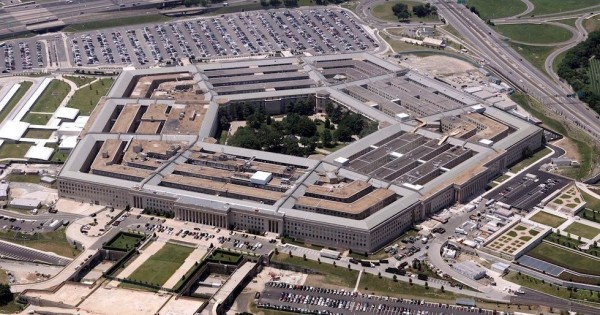

THE PENTAGON — While speaking to reporters on Friday, Chief Pentagon spokesman Jonathan Hoffman dismissed the idea that soldiers’ injuries from the Jan. 8 Iranian attack was downplayed in order to advance a “political agenda” and de-escalate the situation with Iran.
In a statement on Thursday night — following a report from Defense One — U.S. Central Command spokesman Capt. Bill Urban confirmed that 11 service members had been transported for “follow-on screening” for concussion symptoms and possible traumatic brain injuries at either Landstuhl Regional Medical Center in Germany, or Camp Arifjan in Kuwait.
“Every administration official that has gone on the record about what the intentions of the Iranians were — including the Vice President, the Secretary, and the Chairman — is that their intention was to injure or kill Americans,” Hoffman said. “So this idea that there was an effort to de-emphasize injuries for some sort of … political agenda, doesn’t hold water to what the administration has said on the record.”
Defense Secretary Mark Esper was not made aware of injuries to service members until Jan. 16, according to Hoffman and Pentagon press secretary Alyssa Farah, when vice chairman of the Joint Chiefs Gen. John Hyten “interrupted” a meeting he was in to deliver an update, following a report from the head of CENTCOM, Gen. Kenneth F. McKenzie, Jr.
The injuries were not reported to Esper sooner, Hoffman said, because of reporting requirements.
Typically, injuries are not reported up the chain to the Pentagon unless they include incidents “threatening of life, limb, or eyesight,” Farah explained. Hoffman also said that some service members did not show symptoms, or report them, until later on.
“Our understanding is that these individuals were able to return to duty following the attacks, and either they had concussion symptoms that appeared shortly after the attack and did not diminish, and therefore they’ve been sent on for further evaluation,” Hoffman said.
“Or they have concussion symptoms that appeared later, that only manifested later, and therefore have caused medical personnel on the ground to move them onward for examination …. Some individuals did not even report symptoms that they had until a few days later as well. We’ve got a lot of people who are doing really tough jobs, they want to be doing their jobs as much as they can and so some of them may not have reported it until a little bit later.”
Hoffman also explained that this is why President Donald Trump — who said in a televised address that “no Americans were harmed” in the attack — wasn’t aware of the injuries; he gets his information from Esper, and information regarding the concussion symptoms weren’t known outside of troops on the ground.
It was unclear if Trump has since been updated.
Asked if these soldiers would be eligible for the Purple Heart, Hoffman said that determination had not yet been made, but that the Army would be looking into it to see if the incident met the requirements for such a medal. No TBI diagnoses have been made yet.
